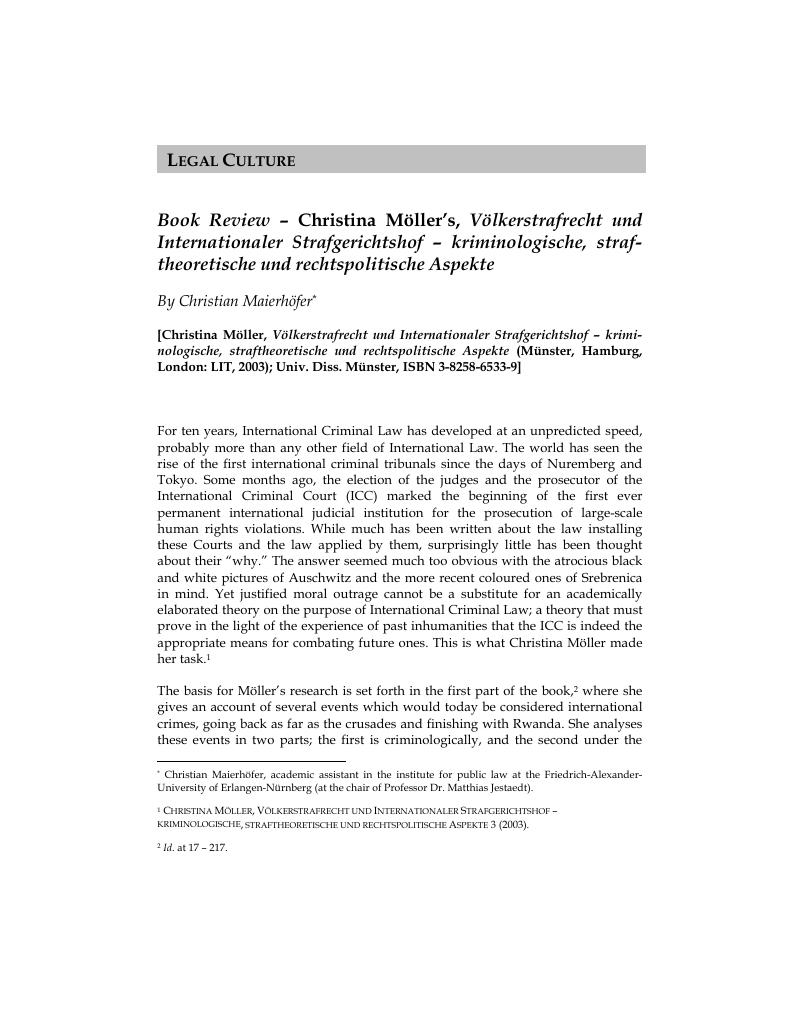No CrossRef data available.
Article contents
Christina Möller's, Völkerstrafrecht und Internationaler Strafgerichtshof – kriminologische, straftheoretische und rechtspolitische Aspekte - [Christina Möller, Völkerstrafrecht und Internationaler Strafgerichtshof – kriminologische, straftheoretische und rechtspolitische Aspekte (Münster, Hamburg, London: LIT, 2003); Univ. Diss. Münster, ISBN 3-8258-6533-9]
Published online by Cambridge University Press: 06 March 2019
Abstract

- Type
- Legal Culture
- Information
- Copyright
- Copyright © 2003 by German Law Journal GbR
References
1 Möller, Christina, Völkerstrafrecht und Internationaler Strafgerichtshof – kriminologische, straftheoretische und rechtspolitische Aspekte 3 (2003).Google Scholar
2 Id. at 17 – 217.Google Scholar
3 Id. at 232 – 237.Google Scholar
4 Id. at 15.Google Scholar
5 Id. at 12.Google Scholar
6 Id. at 420.Google Scholar
7 Id. at 422 to cite the most obvious example.Google Scholar
8 Id.Google Scholar
9 Id. at 550–560.Google Scholar
10 Meyer-Ladewig, Hk-EMRK, Baden-Baden 2003, Art. 6 § 27. Just to be complete: such a right can under the ECHR in fact be deduced from provision safeguarding the right violated by the crime, e. g. the right to life, Art. 2 of the ECHR, in the case of murder, but not from the right to an effective remedy.Google Scholar
11 Supra, note 1 at 440 – 447, 456, 462 – 464, 468 – 470, 479 – 482, 487 – 491, 509 – 511.Google Scholar
12 Id. at 447.Google Scholar
13 Id. at 611.Google Scholar
14 Id. at 610.Google Scholar
15 Id. at 313.Google Scholar
16 Id. at 329.Google Scholar
17 Id. at 314.Google Scholar
18 Id. at 622.Google Scholar
19 Id. at 455.Google Scholar
20 Id. at 610.Google Scholar
21 Id. at 315-350.Google Scholar
22 Id. at 347.Google Scholar
23 Id. at 333.Google Scholar
24 Id.at 321 – 327. Shows (involuntarily) that an international legal system based on state consensus is actually able to ensure the respect of basic human rights, despite the sharp criticism it receives from “cosmopolitans”.Google Scholar


